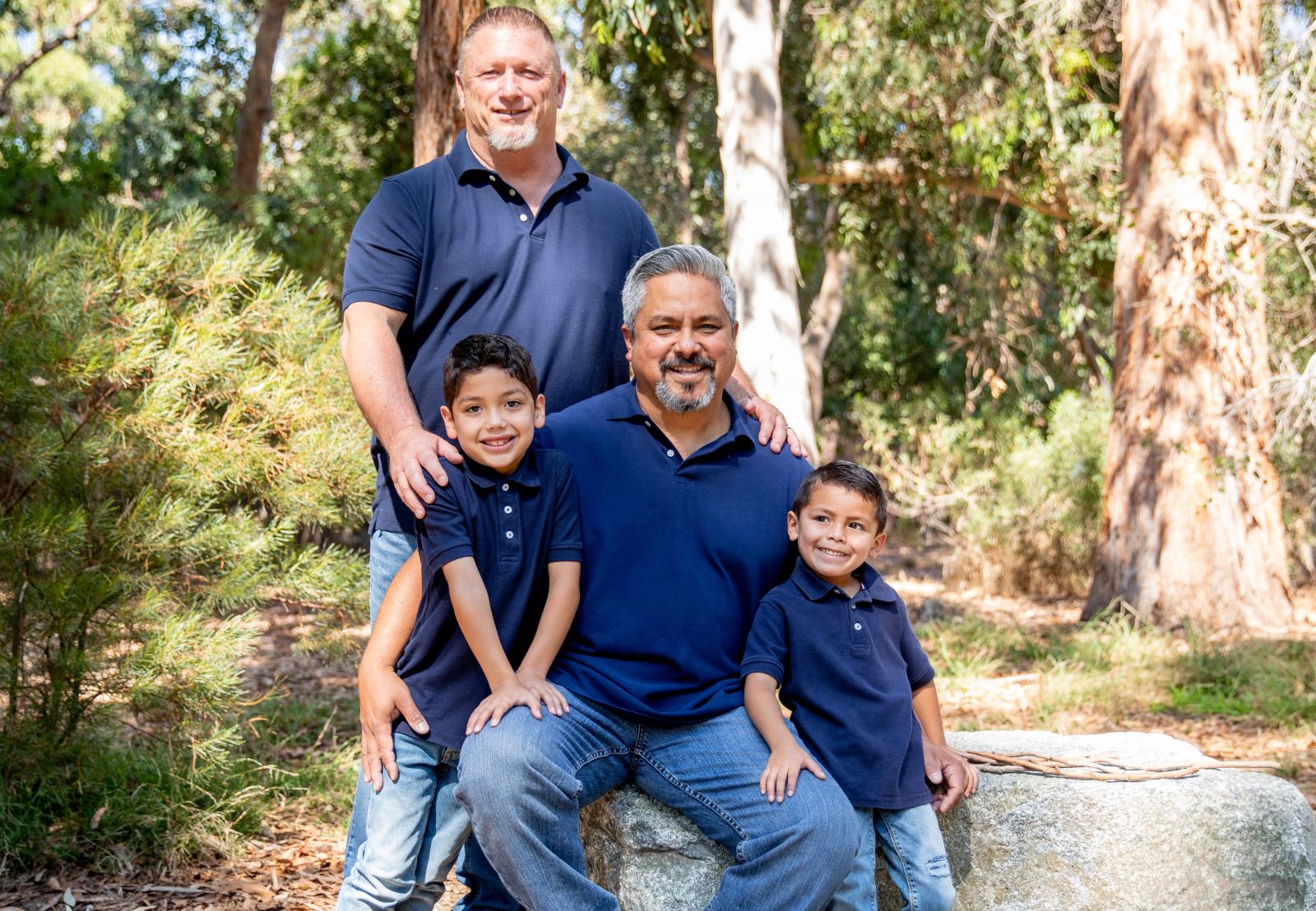Support for parents who adopt from foster care
Subsidies, services, and training are available to help you during the adoption process and throughout your family’s journey

Families who have adopted children from foster care often tell us that one key to success is accessing ongoing supports and services for the whole family.
As an adoptive parent, you will need to prepare yourself to help your child work through past trauma and loss. It’s important to learn about the emotional needs of children who have experienced foster care, as well as the specific needs of your child.
Search for training opportunities in your area on your state’s information page.
On this page:
- State-specific post-adoption services
- Finding parent and youth support groups
- Obtaining financial assistance
- Meeting medical and mental health needs
- Accessing college assistance
- Other post-adoption resources
State-specific post-adoption services
In many states, adoptive families have access to ongoing support such as information and referral, respite care, youth activities, support groups, therapeutic supports, and training. The specific services available to your family will depend primarily on where you live and if you adopted from foster care in that state.
Some states may provide support to all adoptive families while others limit services to those who adopted from the state’s foster care system.
Search for post-adoption support services by state.
Respite care is the short-term care of a child that gives the regular caregiver a break. Search for respite care where you live using the ARCH National Respite Network and Resource Center’s national respite locator service.
Finding parent and youth support groups
Parent support groups offer opportunities to network, share information and resources, and learn from other adoptive parents who are experiencing or have experienced the same things as you. Support groups for older children and teens provide opportunities for socialization and peer connection.
Search our state information pages or use Child Welfare Information Gateway’s National Foster Care and Adoption Directory to locate parent support groups in your state.
You can also connect and share with other adoptive parents and prospective parents through our Facebook page.
Obtaining financial assistance
In most cases, adopting from foster care is no cost or low cost. Adoption assistance, the federal adoption tax credit, and state adoption tax credits—where available—also help defray the cost of adoptions from foster care.
Adoption subsidies and financial assistance
Adoption assistance (also known as adoption subsidies) offers ongoing financial support for most children adopted from foster care through monthly payments and reimbursement of some one-time costs. States provide varying levels of financial assistance when adopting a child from foster care.
Read more at Child Welfare Information Gateway:
- Search a database of adoption assistance by state
- Learn about grants, loans, and adoption tax credits
Adoption tax credits
The federal adoption tax credit allows adoptive parents to claim adoption expenses—such as necessary adoption fees, court costs, attorney fees, and traveling expenses (including meals and lodging while away from home)—as a credit on their federal taxes. For those adopting from foster care, most adoptions are considered “special needs”—which means parents can claim the full credit even if they have no expenses. If a child receives adoption assistance (80 to 90 percent of children adopted from foster care do), the child is considered to have “special needs” for the purposes of the adoption tax credit.
Please know, though, that even if you can claim the credit, you might not be able to use it. The adoption tax credit is not a refundable credit. Taxpayers can only receive the credit if they have federal income tax liability.
Find out more:
- Learn how to claim the credit the North American Council on Adoptable Children website.
- Find information and required forms for claiming the credit on the US Internal Revenue Service website.
Many states also offer tax credits for adoptive families. Benefits and amounts vary by state.
Meeting medical and mental health needs
Most children adopted from foster care are eligible—through the adoption assistance program—for Medicaid health coverage. Child Welfare Information Gateway offers a searchable list of adoption assistance and medical assistance by state.
Accessing college assistance
There is a wealth of resources available to adoptive parents to help you meet the educational needs of your child, particularly for sending them to college. In some states, young people who were adopted from foster care have access to tuition assistance programs.
For the purposes of the FAFSA, those adopted at 13 or older are considered independent students and thus have access to additional financial aid options without considering their adoptive parents’ income.
Child Welfare Information Gateway has a great list of educational assistance programs.
Other post-adoption resources
The Child Welfare Information Gateway has many additional listings and resources for adoptive families:
- Information on grants, loans, and tax credits for adoption
- Listing of educational assistance programs
- Information about helping adopted children cope with grief and loss
- General information on parenting after adoption
- Resources for adoptive families
Things to do next:
- Talk with one of our foster care and adoption specialists about support available to families who adopt. Call 888-200-4005. They are ready to answer your questions and connect you with your local agency.
- Read stories of families who adopted from foster care on our blog.
- Subscribe to receive our monthly newsletter providing information and resources to foster and adoptive families.
